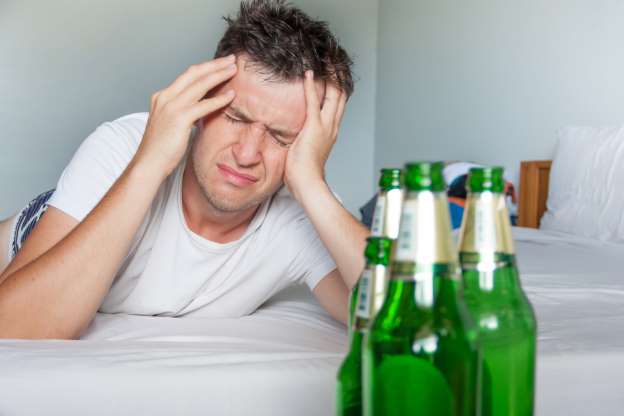Hangovers are quite common for people in their 20’s who like to party and enjoy the occasional drinking binge. They have various effects, most of which can be cured easily. If one feels dehydrated, electrolytes can be helpful and if one feels sluggish, exercising is the remedy. However, the most disturbing effects of hangovers are the emotional ones. There aren’t any concrete remedies that can help in overcoming these effects however, a recent study in Personality and Individual Differences has listed the kind of people who are most susceptible to the effects of this practice and their subsequent “hangxiety.”
The emotional toll of a hangover is known as “hangxiety”. It basically describes the various negative feelings that plague the hungover brain. It might often lead to an intense level of questioning about “last night” followed by a critical self-analysis.

A recent study conducted by Beth Marsh, a research assistant at University College London’s clinical pharmacology unit, supports the idea that hangxiety is a real phenomenon that effects some people more than others. This study conducted on 97 individuals, concluded that people who were more shy reported intense feelings of anxiety after a night of social drinking.
There is no firm explanation for the existence of this correlation. However, the answers lie in the concept of ‘Post-event processing’. “This is a characteristic of social anxiety where people have characteristic rumination or dwelling after a social event, almost re-running the experience in their mind with the kind of negative bias that comes from being shy or socially anxious”, said Marsh.

The hangxiety in shy people and introverts who already feel anxious in a social setting increases when alcohol is mixed in the equation. When the memory of the events from the night before is spotty, a self-critical person naturally assumes the worst of things thereby further deteriorating the effect of hangover.
At this point however, this explanation remains speculative. Marsh’s experiment is a “naturalistic study” that investigates the emotional toll of one night of drinking in a social setting. This was different from the previous studies, which were conducted by interviewing hungover people. This made it tougher to actually track the emotional and social aspects of the hangovers and hence weren’t as effective.

Marsh’s experimental design gave her study a window into the social reasons that people drink in the first place and its after effects. Here, she found that getting drunk only decreased anxiety in individuals for the night, but their anxiety significantly increases the next day.
Going forward, Marsh will try to find a way to test her theory about the effects of alcohol on post-event processing. It would be fascinating to see actual conclusions about hangover, taking all social aspects into consideration. Maybe we will see a day where there exists a remedy which takes care of both the physical and emotional aspects of a night out! Until then, indulge wisely!
Interested in more information about lifestyle choices? Click here!



Nice Information